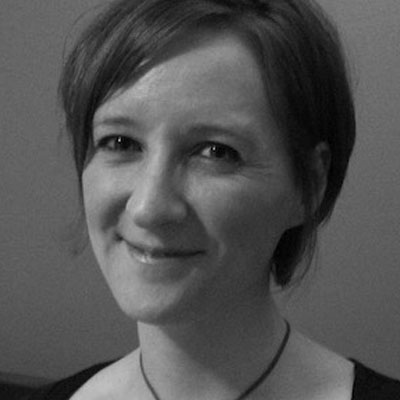CDC is in crisis amid an ouster, resignations, defiance, and outraged lawmakers.
Demetre Daskalakis, former director of the National Center for Immunization and Respiratory Diseases at the Centers for Disease Control and Prevention (CDC), center, embraces a supporter during a clap out outside of the Centers for Disease Control and Prevention (CDC) headquarters in Atlanta, Georgia, US, on Thursday, Aug. 28, 2025. Credit: Getty | Dustin Chambers
The US Centers for Disease Control and Prevention descended into turmoil this week after Health Secretary and zealous anti-vaccine advocate Robert F. Kennedy Jr. ousted the agency's director, Susan Monarez, who had just weeks ago been confirmed by the Senate and earned Kennedy's praise for her "unimpeachable scientific credentials."
It appears those scientific chops are what led to her swift downfall. Since the Department of Health and Human Services announced on X late Wednesday that "Susan Monarez is no longer director" of the CDC, media reports have revealed that her forced removal was over her refusal to bend to Kennedy's anti-vaccine, anti-science agenda.
The ouster appeared to be a breaking point for the agency overall, which has never fully recovered from the public pummeling it received at the height of the COVID-19 pandemic. In its weakened position, the agency has since endured an onslaught of further criticism, vilification, and misinformation from Kennedy and the Trump administration, which also delivered brutal cuts, significantly slashing CDC's workforce, shuttering vital health programs, and hamstringing others. Earlier this month, a gunman, warped by vaccine misinformation, opened fire on the CDC's campus, riddling its buildings with hundreds of bullets, killing a local police officer, and traumatizing agency staff.
Monarez's expulsion represents the loss of a scientifically qualified leader who could have tried to shield the agency from some ideological attacks. As such, it quickly triggered a cascade of high-profile resignations at the CDC, a mass walkout of its staff, and outrage among lawmakers and health experts. While the fallout of the ouster is ongoing, what is immediately clear is that Kennedy is relentlessly advancing his war against lifesaving vaccines from within the CDC and is forcing his ideological agenda on CDC experts.
Some of those very CDC experts now warn that the CDC can no longer be trusted and the country is less safe.
Here's what we know so far about the CDC's downturn:
The ouster
Late Wednesday, The Washington Post reported that, for days prior to her ouster, Monarez had stood firm against Kennedy's demands that she, and by extension the CDC, blindly support and adopt vaccine restrictions put forward by the agency's vaccine advisory panel—a panel that Kennedy has utterly compromised. After firing all of its highly qualified, extensively vetted members in June, Kennedy hastily installed hand-selected allies on the Advisory Committee on Immunization Practices (ACIP), who are painfully unqualified but share Kennedy's hostility toward lifesaving shots. Already, Kennedy's panel has made recommendations that contradict scientific evidence and public health.
It is widely expected that they will further undo the agency's evidence-based vaccine recommendations, particularly for COVID-19 and childhood shots. Experts fear that such changes would undermine public confidence in both vaccines and federal guidance, and make vaccines more difficult, if not impossible, for Americans to obtain. Kennedy has already restricted access to COVID-19 vaccines, prompting medical associations to produce divergent recommendations, which raises a slew of unanswered questions about access to the vaccines.
Amid the standoff over rolling back vaccine policy, Kennedy urged Monarez to resign. She refused, and instead called key senators for help, including Bill Cassidy (R-La.), who cast a critical vote in favor of Kennedy's confirmation in exchange for concessions that Kennedy would not upend CDC's vaccine recommendations.
Cassidy then called Kennedy, which angered the anti-vaccine advocate, who then chastised Monarez. The beleaguered director was then presented with the choice to resign or be fired. She continued to refuse to resign. On Wednesday evening, HHS wrote of her termination on X. But Monarez, speaking through her lawyers, reiterated that she would not resign and had not been notified of her termination. Late Wednesday night, her lawyers confirmed that White House officials had sent notification of termination, but she still refused to vacate the role.
"As a presidential appointee, senate confirmed officer, only the president himself can fire her," her lawyers, Mark Zaid and Abbe Lowell said in a statement emailed to Ars Technica. "For this reason, we reject the notification Dr. Monarez has received as legally deficient and she remains as CDC Director. We have notified the White House Counsel of our position."
On Thursday, the Post reported that the White House had already named a replacement. Jim O’Neill, currently the deputy secretary of HHS, is to be the interim leader of the CDC. O’Neill was previously a Silicon Valley investor and entrepreneur who became a close ally of Peter Thiel. He also worked as a federal official in the George W. Bush administration. During the COVID-19 pandemic, he was a frequent critic of the CDC, but at his Senate confirmation hearing in May, he called himself "very strongly pro-vaccine."
Kennedy, meanwhile, went on Fox News' Fox and Friends program Thursday and said the CDC is "in trouble" and that "we're fixing it. And it may be that some people should not be working there anymore."
Kennedy's ACIP is now scheduled to meet September 18–19 to discuss COVID-19 shots, among other vaccines.
Response at the CDC
Soon after news broke of Monarez's removal, three high-ranking CDC officials resigned together: Daniel Jernigan, director of the National Center for Emerging Zoonotic Infectious Diseases; Debra Houry, chief medical officer; and Demetre Daskalakis, director of the National Center for Immunization and Respiratory Diseases.
Their resignation letters spoke to the dangers of Kennedy's anti-vaccine, anti-science agenda.
"For the good of the nation and the world, the science at CDC should never be censored or subject to political pauses or interpretations," Houry wrote in her resignation letter. "Vaccines save lives—this is an indisputable, well-established, scientific fact. ... It is, of course, important to question, analyze, and review research and surveillance, but this must be done by experts with the right skills and experience, without bias, and considering the full weight of scientific evidence. Recently, the overstating of risks and the rise of misinformation have cost lives, as demonstrated by the highest number of US measles cases in 30 years and the violent attack on our agency."
In his resignation letter, Daskalakis slammed Kennedy for his lack of transparency, communication, and interest in evidence-based policy. He accused the anti-vaccine advocate of using the CDC as "a tool to generate policies and materials that do not reflect scientific reality and are designed to hurt rather than to improve the public’s health." He also blasted ACIP's COVID work group members as having "dubious intent and more dubious scientific rigor."
"The intentional eroding of trust in low-risk vaccines favoring natural infection and unproven remedies will bring us to a pre-vaccine era where only the strong will survive and many if not all will suffer," Daskalakis wrote. "I believe in nutrition and exercise. I believe in making our food supply healthier, and I also believe in using vaccines to prevent death and disability. Eugenics plays prominently in the rhetoric being generated and is derivative of a legacy that good medicine and science should continue to shun."
In a conversation with The New York Times published Friday, Daskalakis revealed that Kennedy has never accepted a briefing from his center's experts and said the resignations should indicate that "there's something extremely wrong [at CDC].
"And also I think it's important for the American public to know that they really need to be cautious about the recommendations that they're hearing coming out of ACIP," he added.
As the three leaders were escorted out of the CDC on Thursday, the staff held a boisterous rally to show support for them and their agency. On his way out, Jernigan, who worked at CDC for more than 30 years, praised his colleagues.
"What makes us great at CDC is following the science, so let's get the politics out of public health," he said to cheers. "Let's get back to the objectivity and let the science lead us, because that's how we get to the best decisions for public health."
While those three resignations made news on Wednesday and Thursday, they are part of a steady stream of exits from the agency since Kennedy became secretary. Earlier on Wednesday, Politico reported that Jennifer Layden, director of the agency’s Office of Public Health Data, Surveillance, and Technology, had also resigned.
Response outside the CDC
Lawmakers have expressed concern and even outrage over Monarez's firing and what's going on at the CDC.
Sen. Bernie Sanders (I-Vt.) quickly demanded a bipartisan investigation into Monarez's firing, calling Kennedy's actions "reckless" and "dangerous."
He went on to blast Kennedy's work as health secretary. "In just six months, Secretary Kennedy has completely upended the process for reviewing and recommending vaccines for the public," Sanders said. "He has unilaterally narrowed eligibility for COVID vaccines approved by the FDA, despite an ongoing surge in cases. He has spread misinformation about the safety and effectiveness of vaccines during the largest measles outbreak in over 30 years. He continues to spread misinformation about COVID vaccines. Now he is pushing out scientific leaders who refuse to act as a rubber stamp for his dangerous conspiracy theories and manipulate science."
Sanders called on Cassidy, chair of the Senate Health, Education, Labor, and Pensions (HELP) Committee, to immediately convene a public hearing with Kennedy and Monarez.
Cassidy called for the upcoming ACIP meeting to be postponed.
"Serious allegations have been made about the meeting agenda, membership, and lack of scientific process being followed for the now announced September ACIP meeting," Cassidy said in a statement. "These decisions directly impact children’s health and the meeting should not occur until significant oversight has been conducted. If the meeting proceeds, any recommendations made should be rejected as lacking legitimacy given the seriousness of the allegations and the current turmoil in CDC leadership."
Outside health organizations also expressed alarm about the situation at the CDC.
The American Medical Association said it was "deeply troubled" by the agency's turmoil and called Monarez's ouster and the other resignations "highly alarming at a challenging moment for public health."
In a joint press conference on Thursday of the Infectious Disease Society of America and the American Public Health Association, leaders for the groups spoke of the ripple effects in the public health community and the American public more broadly.
"When leadership decisions weaken the CDC, every American becomes more vulnerable to outbreaks, pandemics, and bioterror threats," Wendy Armstrong, vice president of the Infectious Disease Society of America said in the briefing. "We're speaking out because protecting public health is our responsibility as physicians and scientists. It's imperative that the White House and Congress take action to ensure a functioning CDC as the current HHS Secretary Robert Kennedy has failed."
Georges Benjamin, executive director of the American Public Health Association, echoed the call, saying, "We've had enough."
Beth is Ars Technica’s Senior Health Reporter. Beth has a Ph.D. in microbiology from the University of North Carolina at Chapel Hill and attended the Science Communication program at the University of California, Santa Cruz. She specializes in covering infectious diseases, public health, and microbes.











 English (US) ·
English (US) ·